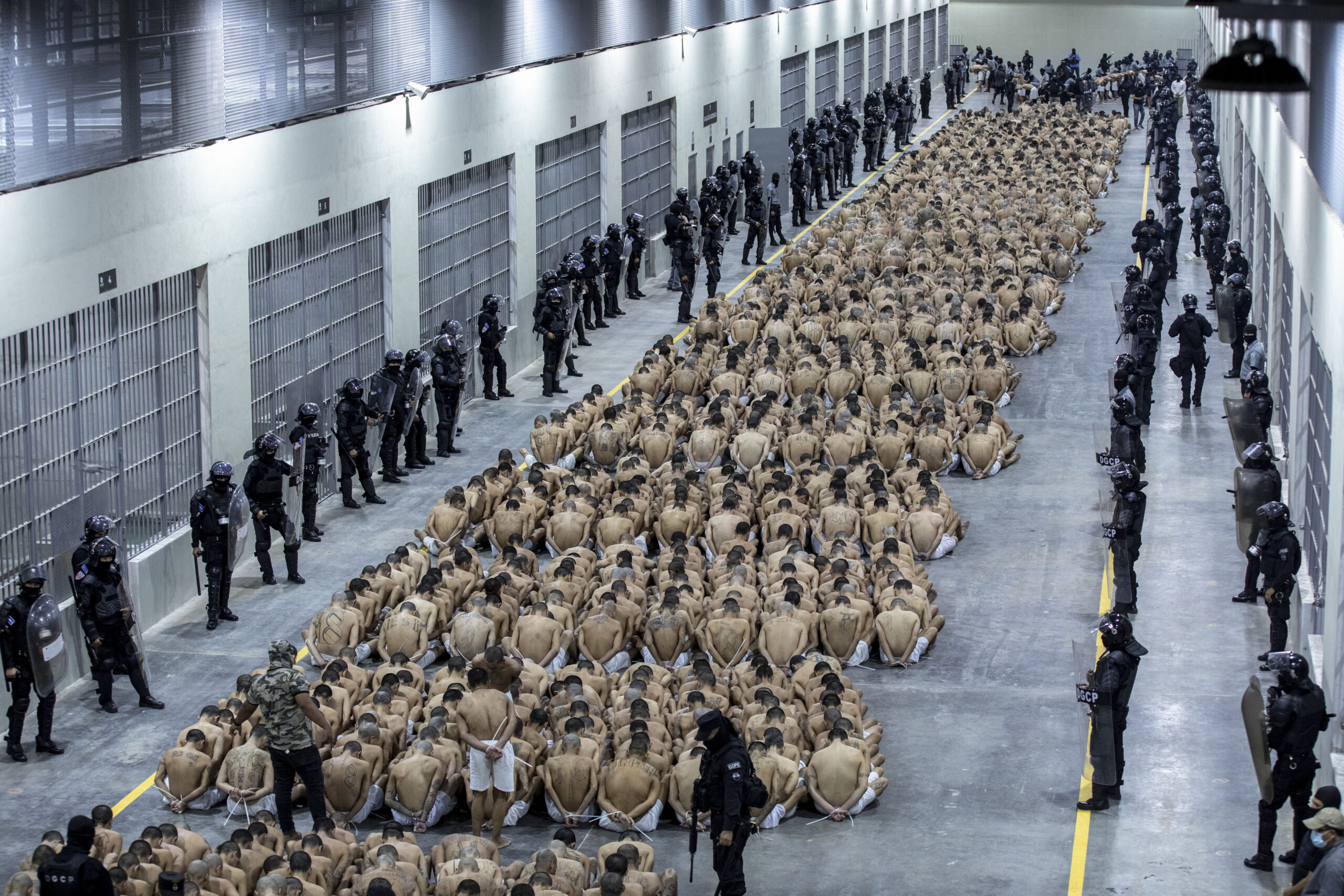
By Luis De Jesus
Mar 31, 2024, 11:57 PM EDT
The non-governmental organization Cristosal revealed this Thursday that more than 3,780 cases of people have suffered human rights violations during the application of an emergency regime in El Salvador aimed at combating gangs. These statistics, shared with EFE, cover from March 27, 2022 to the same date this year.
According to the NGO’s data, in two years of the measure, 3,643 complaints have been received for human rights violations, with a total of 3,789 direct victims. The overwhelming majority of the complaints, 96.76%, refer to arbitrary detentions, followed by 25.7% of cases of illegal home invasions and 9.9% of reports of mistreatment.
The profile of the affected people shows that 57.4% are young people between 18 and 30 years old, mostly men. Next in incidence are people between 31 and 41 years old, with 24.9%, and those 42 years old or older, with 12.8% of the total. In addition, 62 cases of affected people from the LGBTIQ+ community have been registered, with the majority being agents of the National Civil Police who were identified as perpetrators.

The emergency regime, decreed on March 27, 2022 after a wave of murders over a weekend, has been controversial, although it has contributed to the reduction of homicides in El Salvador and has resulted in more than 78,500 arrests.
This regime has been accepted by a considerable part of the population, especially those who live in communities historically affected by gang violence, thus raising the popularity of President Nayib Bukele.
However, Amnesty International issued an alert on Wednesday and warned that the human rights crisis in El Salvador, resulting from the implementation of the regime, could worsen during President Bukele’s second term.
The organization pointed out that, despite two years of this regime and a series of reforms to criminal legislation, the Salvadoran State continues to evade its international obligations regarding human rights, by maintaining these measures as the main component of its strategy of security.
Keep reading:
• Two teenage brothers sentenced to prison for armed assault on a TV channel in Ecuador
• A Hercules C-130 plane donated by the US arrived in Ecuador to combat organized crime
• Nayib Bukele deployed 5,000 soldiers and police in El Salvador to capture gang members
